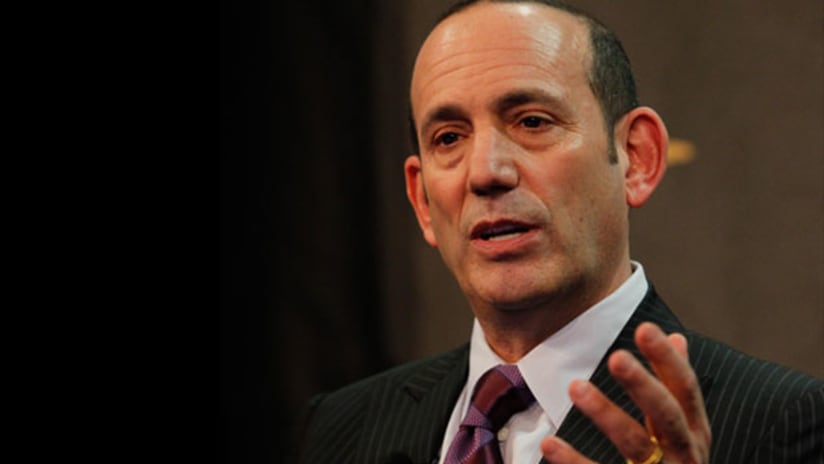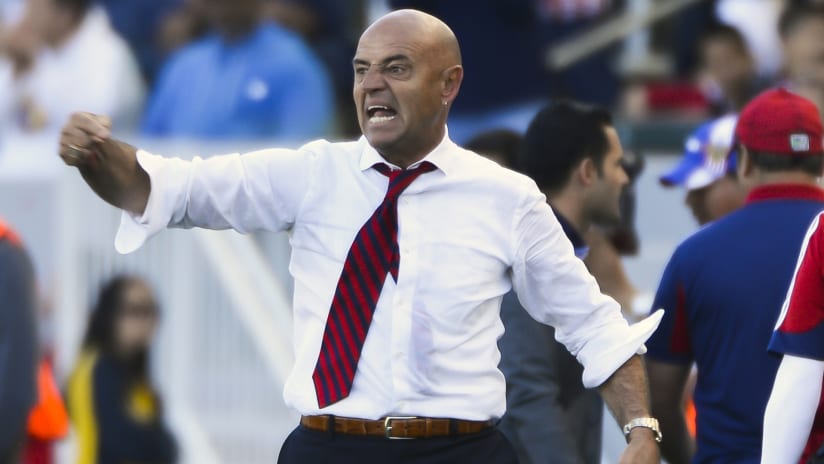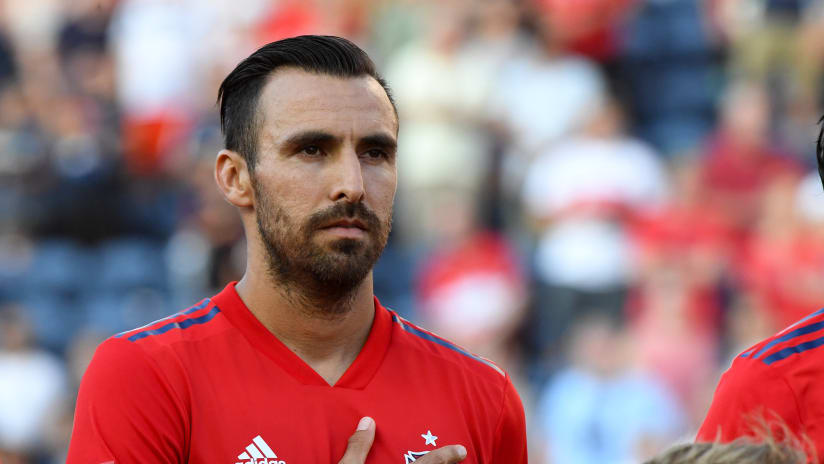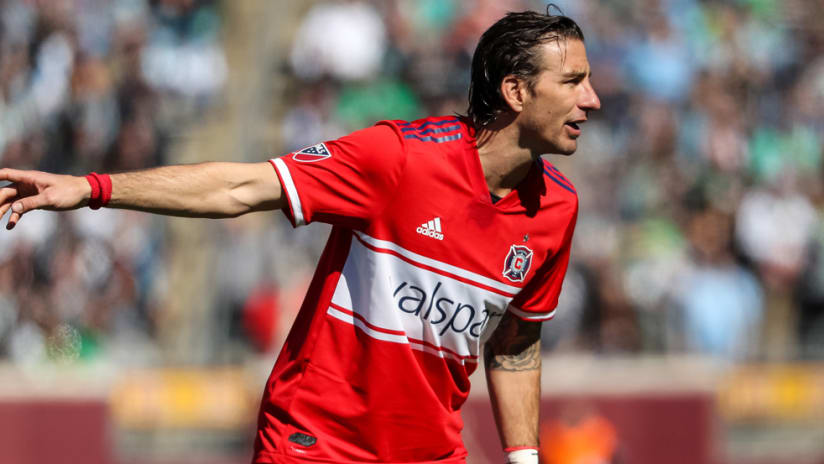MLS is going to bring Chivas USA back.
That’s the message from MLS Commissioner Don Garber, who spoke with the media on a conference call on Thursday afternoon following the league’s acquisition of the Los Angeles-based franchise.
“It’s time to turn to a new chapter here,” Garber said. “That new chapter will start with us finding a new ownership group – we’re pretty good at that. And developing with a stadium plan – we’re pretty good at that, too.”
Chivas USA were founded in 2005 under the joint ownership of Antonio Cue and Jorge Vergara – the owner of Mexican club Chivas de Guadalajara – pioneering the concept of a foreign club’s owning an MLS club with the intention of extending the flagship club’s brand. The 50-50 partnership between Cue and Vergara (pictured below right) proved to be less than ideal, Garber admitted, and in 2012, Vergara and his wife, Angelica Fuentes, purchased 100 percent control of the club.
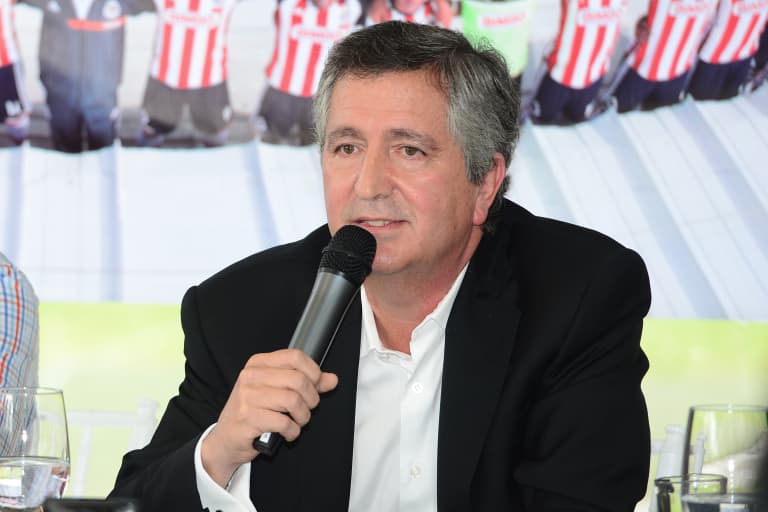
But despite Vergara’s "passion for MLS," as Garber said, the club continued to struggle.
Garber was adamant, however, that Chivas USA’s plight was not a failure in concept, but a failure of execution.
"There were a wide variety of decisions made both by the league and by ownership that just weren’t right,” the commissioner said. “That was 10 years ago. If we were to do it again, and we launched this exactly as the way it was intended, who knows if in today’s environment, whether it would have been more successful.”
More specifically, Garber laid out the central focus of discussions he had with Vergara and Fuentes regarding Chivas USA prior to the league’s purchasing the club.
"What do you really need to do to turn this around?” Garber asked. “Is the brand right? If it’s not right it needs to be changed. If it needs to be changed, how does that fit with what your originally plan was with extending the Guadalajara brand?
"Number two: We need a soccer stadium that will take massive amounts of capital? Is that what you want to do with your money today? Or are there things that you and your family want to do philanthropically to build Chivas de Guadalajara?
“The last aspect of it was it would require them to double or triple down with their own personal time. ... It was just not something they were capable of doing.”
Garber said the league paid “market price” for the club, and that MLS will now begin the process of finding a committed, local owner – something the league hopes to do by the end of 2014, a schedule Garber termed as “ambitious.”
"We have had lots of conversations with local owners,” Garber said. “There’s enormous interest, but this is a heavy lift.”
One high-profile name was floated but ruled out: David Beckham.
"David had the option of picking a market and he picked Miami," Garber said, adding: "I wonder if he would’ve thought differently if his option execution date was a year from now.”
As for finding a new home for the Goats, the league will “lead discussions on the stadium front, and hopefully be in a position to hand them over to a new ownership group” when one is found.
The preferred site remains the current location of the LA Sports Arena in downtown Los Angeles near the campus of the University of Southern California, Garber said.
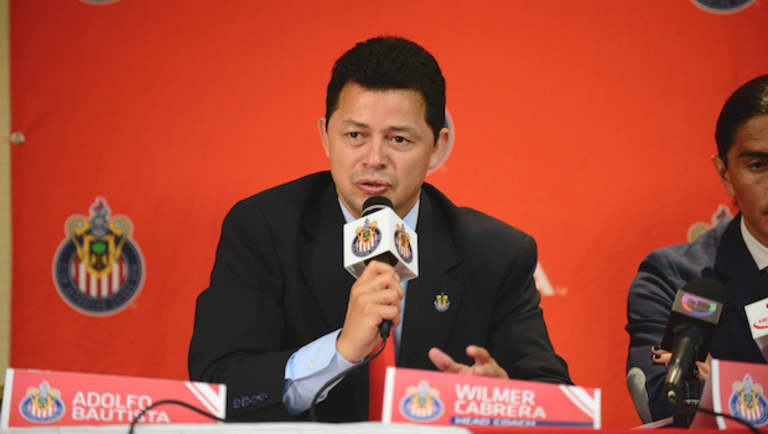
In the meantime, the club will continue to play at StubHub Center for at least the 2014 season, and possibly longer, if necessary. First-year head coach Wilmer Cabrera (
right
), who was hired in January, will remain in his position. Cabrera is the team’s fourth head coach since 2012, and although the league office consulted with Vergara on his hire, Cabrera will get his shot to run the team to his own designs.
“He’ll report to the new president,” Garber explained, “not the league office.”
One of Cabrera’s challenges right away will be to compete with the Galaxy and help resurrect the SuperClasico rivalry that was once one of MLS’s fiercest derbies.
“We really believe in it,” Garber said. “We’re going to take responsibility to take it to where we originally intended it would be when they joined the league in 2005. ... Our first year, when the Galaxy and Chivas played, this was our Cascadia Cup. Those games were massive sell-outs. And we lost that. So we believe we can get that back.”
Garber expressed his confidence that the next iteration will be more successful as the league – and prospective new owners – draw on some painful lessons.
“No doubt that we will be more successful than in the past,” Garber said. “It’s not a market issue, it’s an execution issue. We've learned a lot of lessons. We can re-launch, and we have the benefit of experience so we can re-launch successfully.”
“There is no rush, you can only re-launch once,” Garber continued. “We know we’ve got to get this right the second time around.”

